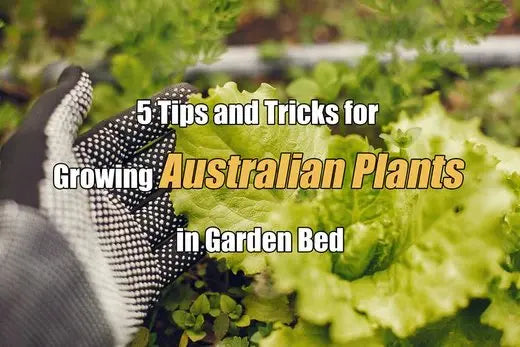How to Grow Basil from Windowsill to Raised Bed
By George Brown
Author bio: George Brown is the founder of UrbanLeafy.com, where he channels his passion for indoor gardening into helping others transform their spaces into lush sanctuaries. He is dedicated to sharing expert advice to assist fellow enthusiasts in cultivating their personal oases and bringing the serenity of nature indoors.
As the plants mature, grow basil from the protective indoor environment to the more variable conditions of an outdoor garden bed presents a new set of challenges. This article aims to guide readers through the process of nurturing their basil from the initial indoor potting to the eventual outdoor transplanting. It will provide insights into the best practices for ensuring a smooth and successful integration of basil into the outdoor garden ecosystem.
The Different Types of Basil

Basil, a member of the mint family, is an herb steeped in history, tracing its origins back to the warm climates of Asia and Africa. Over the centuries, it has branched into several varieties, each with its own distinctive character.
Sweet basil plant
Sweet basil, with its large, tender leaves, is perhaps the most familiar, often associated with Italian cuisine and pivotal in the classic pesto.
Thai basil plant
Thai basil, a staple in Southeast Asian dishes, brings a licorice-like flavor that withstands cooking temperatures better than its sweet cousin.
Purple basil plant
Purple basil, with its striking hue and slightly spicy kick, not only adds complexity to dishes but also a splash of color to gardens.
Beyond their culinary versatility, basils are a treasure trove of nutritional benefits, rich in vitamins, antioxidants, and essential oils with reputed health-promoting properties. Whether used to enhance a caprese salad, infuse a curry, or simply garnish a cocktail, basil transforms the ordinary with its extraordinary flavor profile.
How to Grow Basil from Indoor Potting to the Outdoor Raised Bed
Starting on the Windowsill

Initiating the growth of basil offers a plethora of advantages, providing a controlled environment for these tender herbs to flourish. Starting on the windowsill allows for an early commencement of the growing season, irrespective of outdoor weather conditions, ensuring that the seedlings are robust enough to withstand the transition to an outdoor garden. The selection of an appropriate container is crucial; it should offer ample space for roots to expand and ensure adequate drainage.
Coupling the container with high-quality potting soil, rich in organic matter, sets the stage for healthy growth. Basil demands consistent moisture, yet it despises soggy feet, making judicious watering essential. It thrives in generous sunlight, requiring at least six hours of direct light daily to prosper. Regular pruning not only encourages a bushier growth but also prolongs the plant's vitality, delaying flowering and thus extending the harvest period. Strategic harvesting of the leaves can enhance the plant's vigor, ensuring a steady supply of this aromatic herb.
Transitioning to the Garden Bed

Transplanting basil to the raised garden bed is a pivotal step that typically follows after the last frost, when the soil has warmed. This transition is not merely a change of location. It allows basil to expand its roots and access a broader spectrum of natural resources, resulting in more vigorous growth and yield.
Preparing the garden bed is a foundational task, requiring well-draining soil enriched with organic compost to nourish the plants.
Selecting a sunny spot that receives at least six hours of sunlight and spacing the basil adequately ensures that each plant receives its share of nutrition and airflow, reducing the risk of disease.
Introducing companion plants like tomatoes or marigolds can be mutually beneficial, as they not only share similar light and soil preferences but also help in repelling pests.
Speaking of pests, natural deterrents such as neem oil or a simple spray of soapy water can be effective in keeping common basil adversaries like aphids and spider mites at bay. By integrating these practices, gardeners can create a harmonious ecosystem where basil thrives, contributing to the garden's overall health and productivity.
Ongoing Care in the Garden
Once established in the raised bed, basil's ongoing care becomes a rhythmic interplay of watering, feeding, and mulching to foster optimal growth. Regular watering is essential, yet it's vital to allow the soil to dry slightly between watering to prevent root rot. A balanced, slow-release fertilizer can provide sustained nutrients, while a layer of organic mulch conserves moisture and suppresses weeds. Vigilance against common basil diseases such as fusarium wilt and downy mildew is paramount; early identification and prompt removal of affected plants can prevent widespread issues.
Implementing good air circulation practices, such as proper spacing and avoiding overhead watering, can also mitigate disease risks. For harvesting, frequent picking of the leaves can stimulate the plant to produce more, but it's important to cut just above leaf pairs to encourage bushier growth. By adhering to these care principles, gardeners can ensure a prolonged and bountiful basil harvest throughout the growing season.
How to Store Basil

Preserving the bounty of basil is an art that extends its culinary utility well beyond the growing season.
Drying
Drying is a traditional method, where leaves are carefully dehydrated and then stored in an airtight container, ideally in a cool, dark place to maintain their flavor.
Freezing
Freezing offers another avenue; basil can be chopped and frozen in water or olive oil in ice cube trays, creating convenient flavor-packed portions.
Pesto
Pesto, that quintessential basil concoction, can be prepared and kept in the refrigerator for a short term or frozen for long-term storage, with a thin layer of oil on top to preserve its vibrant green hue. Regardless of the method, the shelf life of preserved basil varies; dried leaves can last up to a year, while frozen basil should be used within a few months for optimal taste.
How to Prune Basil

Pruning basil involves two main methods: pinching the top and pruning side shoots.
- Top Pinching: When the basil plant reaches about 0.65 ft in height, you can start pinching the top. To do this, keep the bottom 6-8 leaves intact and pinch off the stems at the top. This skill encourages branching and makes the plant bushier. By pinching the top, you help the basil plant quickly fill out the pot, increasing leaf density and enhancing the plant's overall appearance.
- Pruning Side Shoots: Besides pinching the top, you can also prune areas with side buds. Cut above the side buds to promote their growth, making the plant more lush. This method, similar to "topping," increases basil's branching and improves its yield. When pruning, ensure you retain enough foliage to support the plant's growth while encouraging lateral growth.
Proper pruning keeps basil healthy and attractive, providing a continuous supply of fresh leaves for culinary or medicinal purposes.
Conclusion
The key to maximizing storage life is to ensure that basil is clean and completely dry before any preservation process, as moisture is the enemy of flavor and longevity. With these techniques, the essence of summer can be captured and savored throughout the year.


